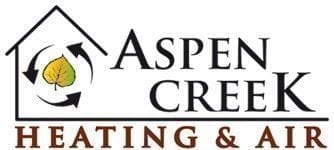
- No Hot Water or Heat
This issue is usually caused by valve failure, airlocks, low water levels, or a bad thermostat.
- Water Leaking or Dripping
Your water pressure may be too high; there may be a loose part or connection.
- Banging and Whistling Noises
When limescale builds up in the heat exchanger, you will hear odd noises from your boiler such as gurgling, whistling or banging. Other concerns may be low water pressure or pump failure.
- No Pilot Light
This is usually caused by a broken thermocouple, which is responsible for responding to temperatures. Your boiler may also have a damaged seal or deposit build up.
- Pressure Loss
There may be a leak somewhere within the central heating system, or a damaged pressure relief valve.
- Frozen Condensation Pipe
Try resetting your boiler, but if this fails, you may have a frozen pipe.
- Radiator Not Heating Up
This is one of the top boiler problems, and there are a number of reasons why this occurs. Most likely, there is air inside; bleeding it should solve the issue. If it fails, you may have a broken pump or another blockage, such as sludge buildup in the pipes, preventing hot water from circulating.
- Boiler Keeps Switching Off
Low water pressure or a bad thermostat are the common culprits, but there may be many reasons including, the supply of gas, electricity, water, oil, air present in the system, or a faulty pump.
- Heater Not Coming on at Set Times
If you have scheduled times but you notice the heater not getting to the right temperature or tuning off at odd times, you may have a faulty thermostat.
Remember, repairing or replacing a boiler should only be done by a qualified and trained professional safety regulated and registered. Never hire just any repair service to tackle top boiler problems; it could be a very costly and dangerous mistake. Check your manuals and model numbers when advising your contractor, and if ever you are in doubt, call for advice. Carbon monoxide poisoning due to faulty gas appliances and flues is a dangerous killer, so be extra cautious and install a carbon monoxide detector.
Here are some of the “To Do’s” your boiler repairman should be checking upon inspection. Be sure to ask if you are in doubt about any overlooked item.
- Visual check flame and boiler
- Internal and external flue checks
- Check the operating pressure and heat input
- Safety checks
- Check case seals and effective seals
- Remove boiler casing to check all components such as burner, heat exchanger, primary injector spark/sensor
- Ensure the boiler is fired safely checking for any faults
- Cleaning of boiler parts if necessary
- Service report with date, time and stamp, showing all work completed
If you are looking to replace or upgrade an old boiler system, you may want to consider the newer sealed condensing systems that take air from outside, versus the older models which are open vented, non-condensing, which take air from within the home. The new boilers will take cleaner air in and are better at retaining energy, giving you about a 25% saving than the older versions. There are 3 of the types of boilers to choose from, depending on your home situation, Gas-Fired Boilers, Oil-Fired Burners, and Electric Boilers.
Here are some other considerations to understand before you buy. Of course, it is always best to consult with the professionals at Aspen Creek Heating & Air.
- Climate
Colder climates always do better with a boiler, but if severe weather is not the primary concern for you, you may opt for a heat pump.
- Sizing
Size is as important as efficiency, too small, and it won’t do the task at hand, too big, and the unit will end up costing you a fortune in the long run. We will take into consideration, things such as your home’s foundation, wall thickness, insulation, windows, air filtering system and more.
- Fuel Type
Again, this will depend on what’s available in your area, or by what your house is already outfitted with. Gas-fuelled are usually your least expensive option, followed by oil and electric.
Energy efficiency is something you definitely want to consider when purchasing a new boiler. The annual Fuel-Utilization-Efficiency or (AFUE) is how boilers are rated. They must have a rating of at least 80%, or 90-98.5% on the high-efficiency scale. The higher the rating is, the more the equipment costs, but the lower the operating costs will be. Which saves you money all around, so do your homework on this one.
Get the most out of your system, by upgrading or boosting your home’s defenses. Add insulation to attics and walls, weather stripping and caulking around door and windows to prevent air from leaking out. Insulate cooling system ducts in crawl spaces, clean your chimney, and make sure fans are spinning clockwise to blow rising heat downwards, and install and set programmable thermostats to automatically lower temperatures at night when you are sleeping or while away on vacation.
If you suspect some issues are going on with your boiler at any time, give Aspen Creek Heating & Air a call today to ensure you are not left in the cold waiting for repair or replacement. These top boiler problems we’ve highlighted will provide you with some insight as to what to look for. And we’ll make sure you always enjoy warm, cozy nights when the weather is cold outside. Call us today for expert help with what may be ailing your boiler system, and we will gladly help rectify the situation.

Recent Comments